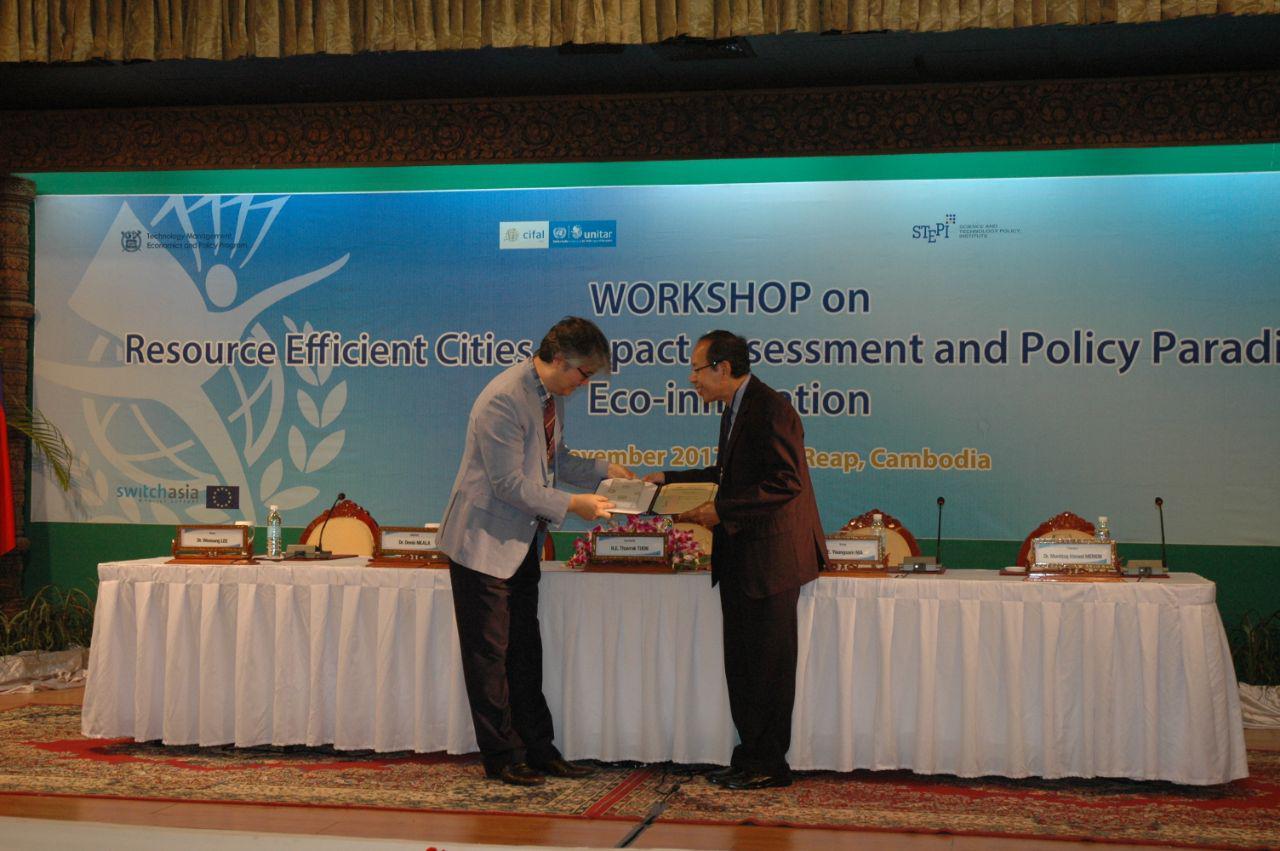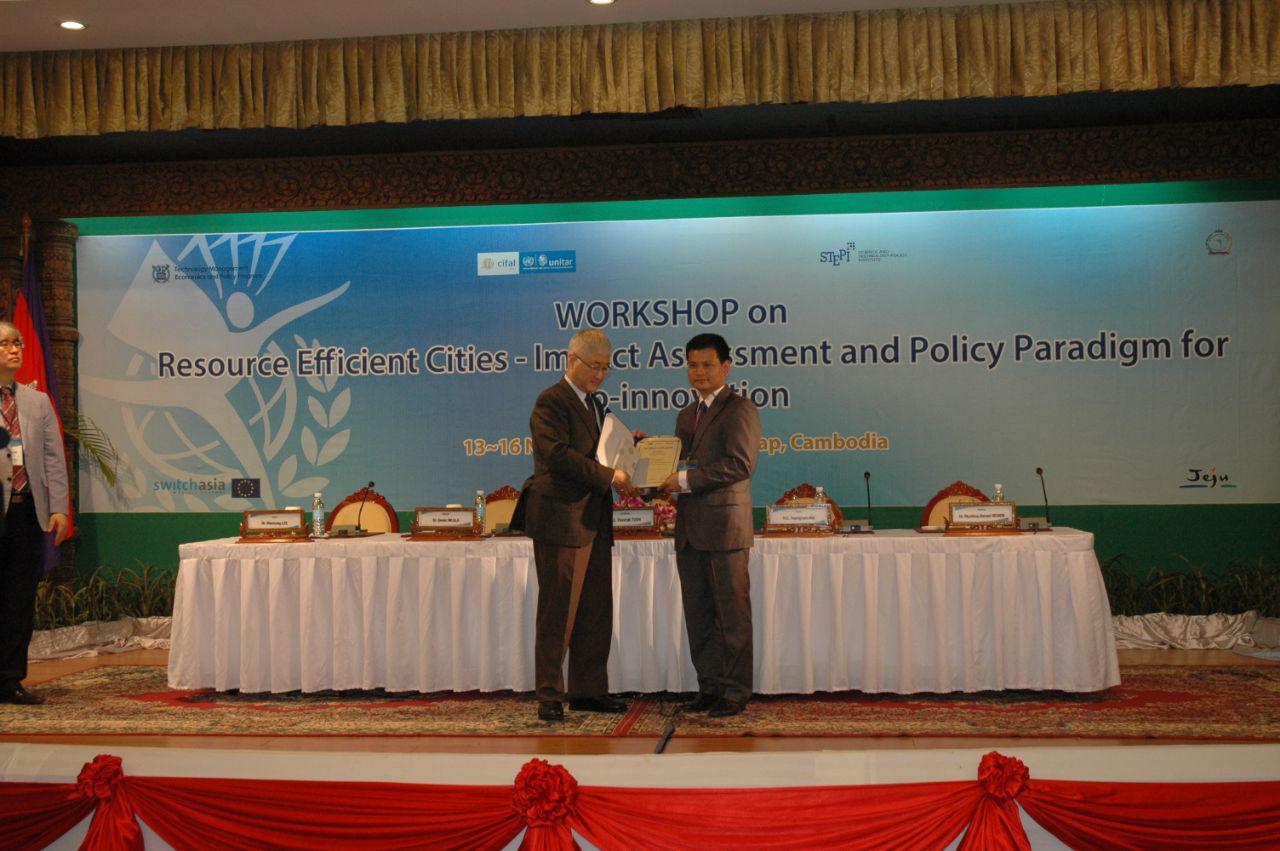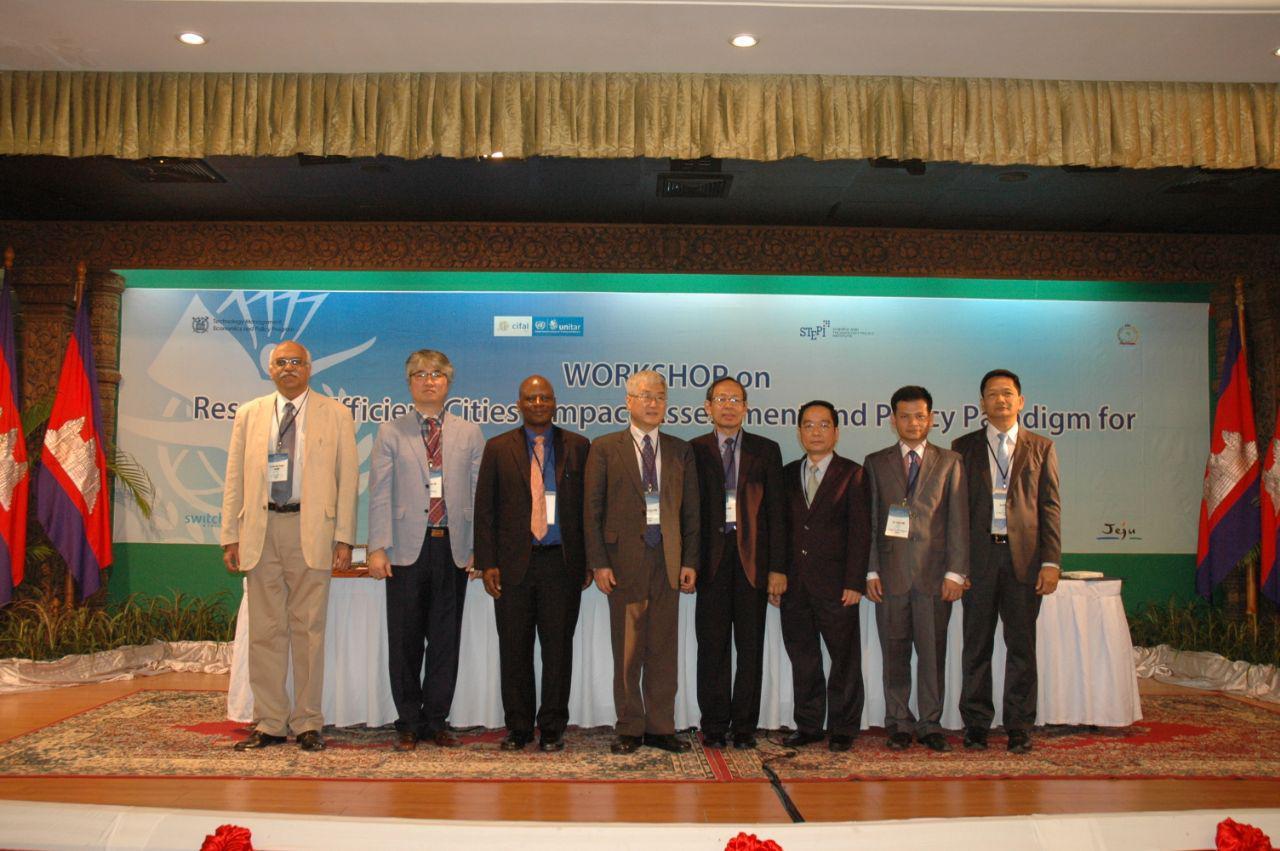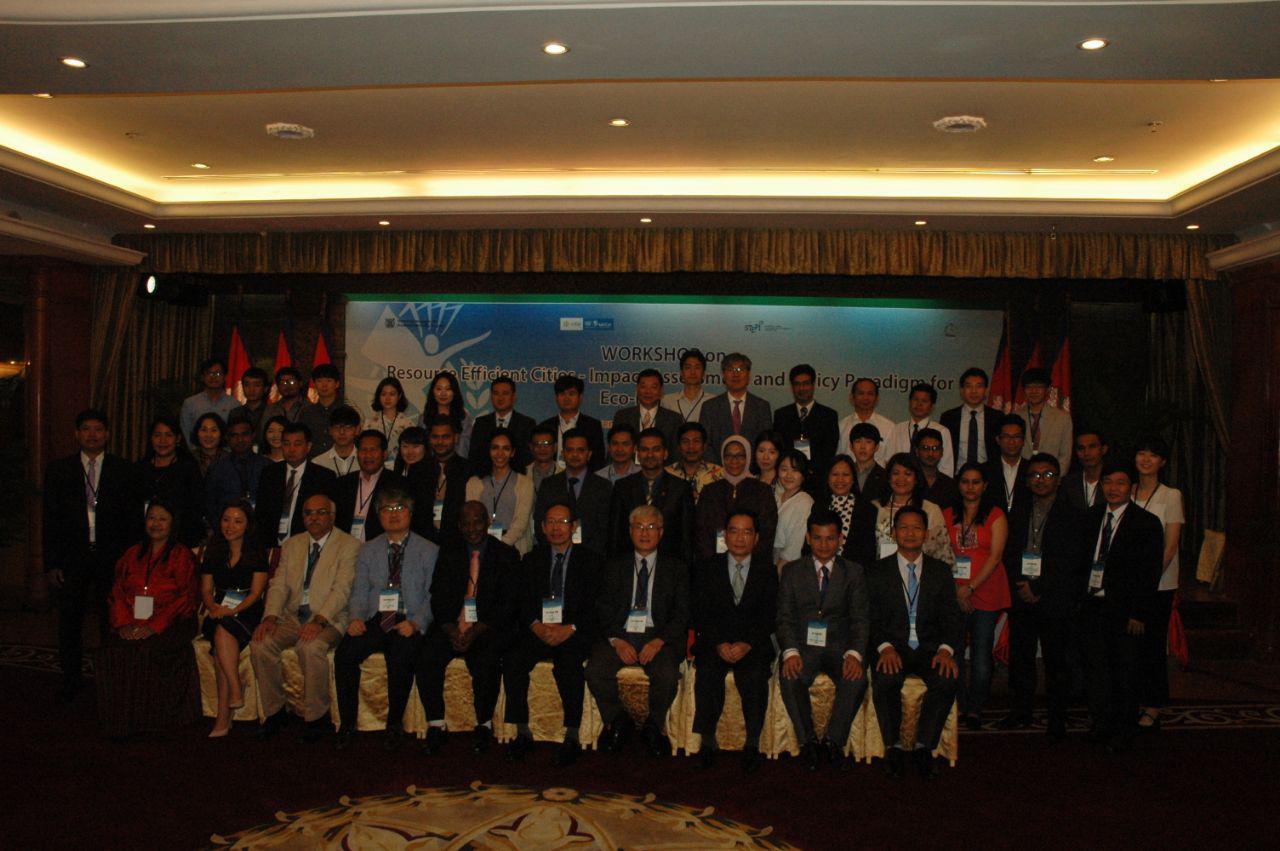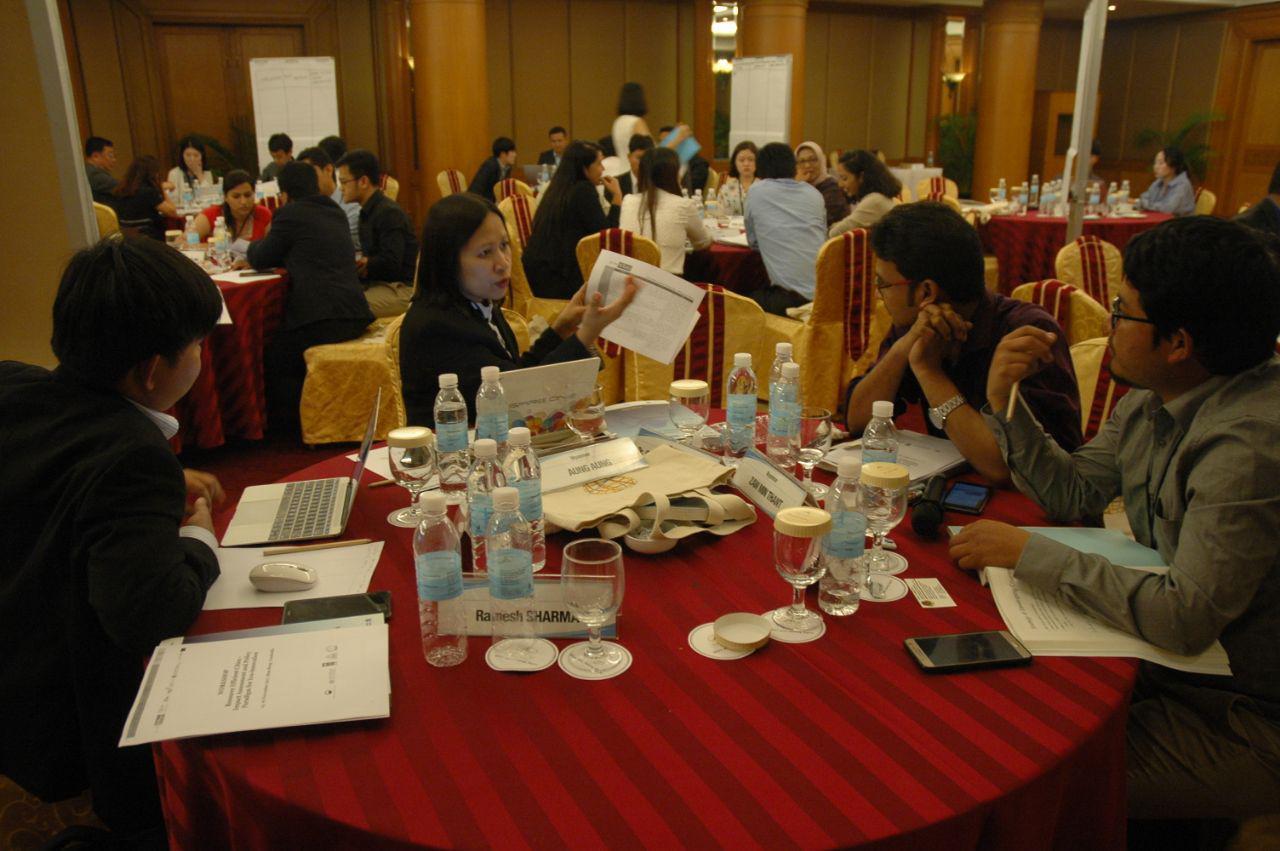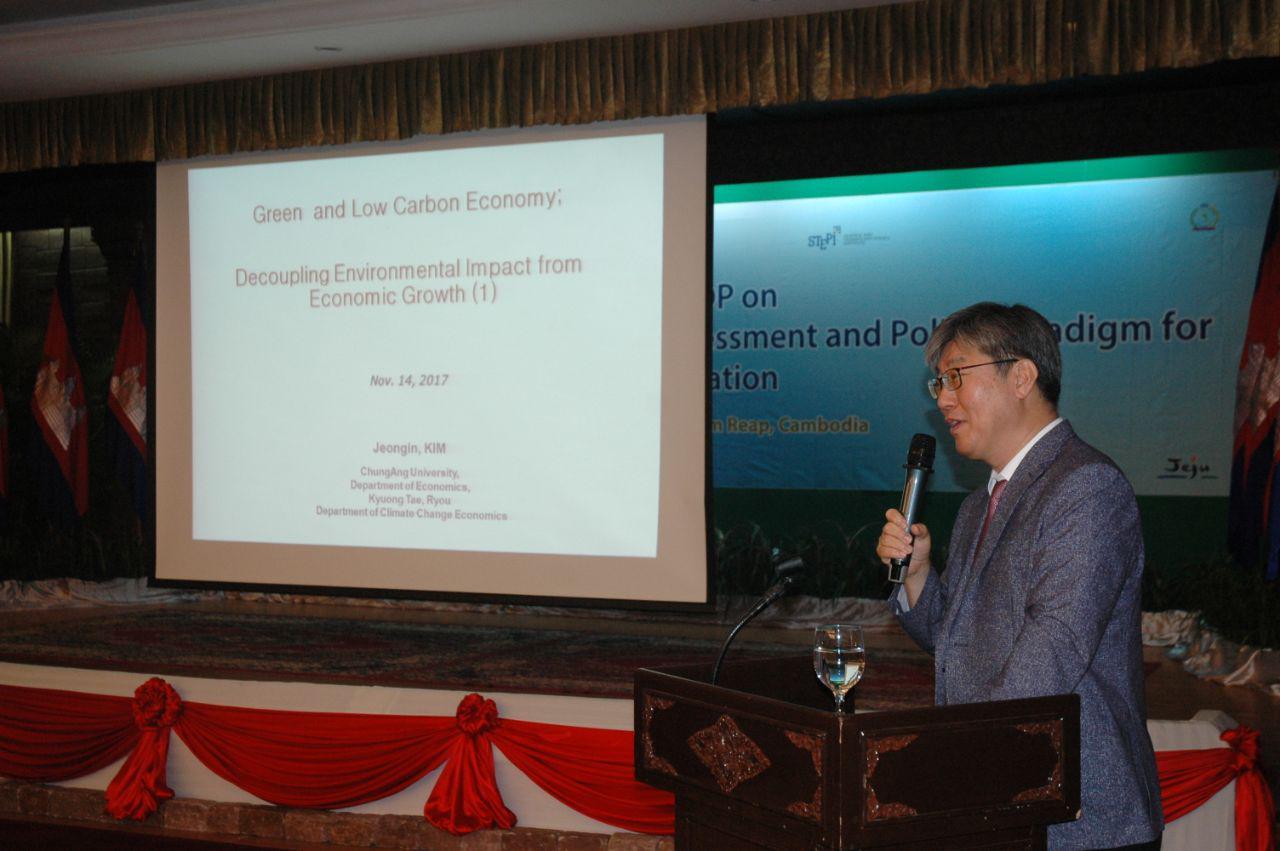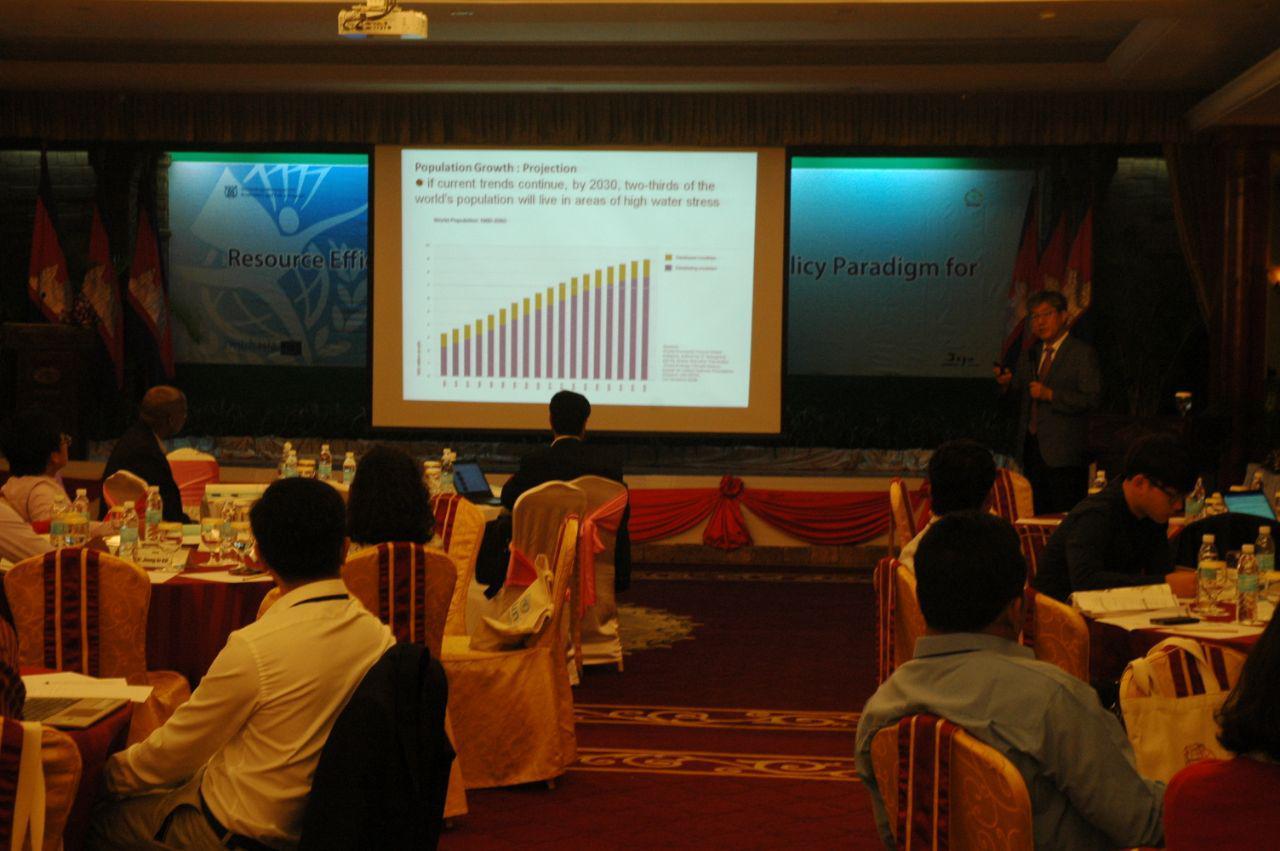Phnom Penh (FN), November 13 - Cities, nowadays, are considered as the center of all human activities and the origin of social, economic, ecological and technological changes. These patterns are more visibly displayed in developing countries where unsustainable urbanization and growth of cities are happening at an unprecedented speed. It will be particularly challenging for developing world cities to tackle issues related to sustainability in the light of growing inequalities, poverty and the pervasiveness of slums and informality. These challenges, on the other hand, present national and local leaders with genuine opportunities to contribute to sustainability by focusing on resource efficiency. Quality of life in cities depends on the management of available natural resources. In resource efficient cities, citizens have more choices and enjoy sustainable life styles with lower costs and reduced environmental impacts created by greater productivity and innovation.
Sustainability in cities can be achieved through harnessing of cooperation, political vision and leadership through projects with themes revolving around sustainability agendas. In addition, cities require support from institutional strategic intermediaries which ensure bottom-up participatory governance and cross-sector and inter-institutional coordination. It is also important to establish monitoring and evaluation mechanisms to assess and benchmark multiple dimensions of urban sustainability. Moreover, cities should make infrastructure choices which have local resilience and global linkages.[Sustainable Resource Efficient Cities – Making It Happen, UNEP, 2012]
In order for cities in developing countries to make smooth transition to sustainability, new policy paradigms need to be introduced in the face of current leading paradigms are being challenged by new approaches based on innovation and sustainable development. Policy paradigms, in general, enable long-term and concerted efforts in reducing the environmental impacts and encouraging efficient use of resources. However, the use of sustainability accounting policy paradigms is largely absent at a local level due to a lack of appreciation for monitoring and evaluation in terms of impact assessment and management. Carefully designed and implemented monitoring and evaluation schemes will make possible the transition to sustainability-oriented values, beliefs, norms and behaviors at the local level.
This UNITAR CIFAL Jeju workshop aims at developing awareness and understanding of sustainability which are accepted internationally, nationally and locally in dealing with development and urbanization issues. The workshop will focus primarily on changes in paradigms and strategies which are important bases of sustainable development and provide advice to governments of developing countries in their policy matters related to resource efficiency. Using an approach grounded in impact assessment and management, the workshop will also give participants a thorough understanding of purposes and functions of different assessment methods together with their achievements and latest initiatives.
Event objectives
This workshop is offered in collaboration with UN Environment, Science and Technology Policy Institute (STEPI) and Seoul National University Technology Management Economics and Policy Program (TEMEP), aims to enhance the capacity of local decision makers, sustainable development officers and other personnel to make an informed decision on which resource efficiency and sustainable urbanization policies will meet their own needs or the needs of their countries, communities and villages. It provides an overview of innovative policy paradigms and offers insights into the impact assessment and management options and strategies.
Learning objectives
At the end of the workshop, participants will be able to:
-determine how resource efficiency can help drive sustainable development;
-discuss the role that (eco-)innovation plays in advancing the Sustainable Development Goals (SDGs);
-explain the benefits and drawbacks associated with a range of policy paradigms and how they may be integrated;
-compare and assess different impact assessment and management models and their suitability for a given situation;
-identify and use tools to overcome barriers in achieving SDGs; and
-share best practices of their countries/cities/communities.
Content and structure
The workshop will include the following: (tentative)
topic 1: resource efficiency
topic 2: sustainable production and consumption
topic 3: green city development and green economy
topic 4: policy paradigms and case studies for innovation and development
topic 5: impact assessment and management
topic 6: climate change and green energy
Methodology
The workshop will be comprised of:
presentations and discussions
self-assessment exercise and group work
UNITAR ‘City-Share methodology’
Target audience
This workshop is open to those in central and local government, non-profit and academic sectors who wish to implement sustainable development policies in both urban and rural settings or make their contribution to reducing environmental impacts through resource efficiency and eco-innovation.
Event detail
Event type: Workshop
(A certificate will be awarded at the end of the workshop.)
Date and venue: 13~16 November 2017, Siem Reap, Cambodia
Organizers: The National Science and Technology Council (Kingdom of Cambodia), UNITAR CIFAL Jeju, UN Environment, Science and Technology Policy Institute (STEPI) and Seoul National University TEMEP
Partners: Jeju Special Self-Governing Province, SWITCH-Asia
Requirement
Selected applicants are required to:
submit necessary documents on time, i.e., registration form etc.
complete and submit pre-training readings and assignments, i.e. case studies, self-assessment, etc.
actively participate in the training program
be fluent in written and spoken English
